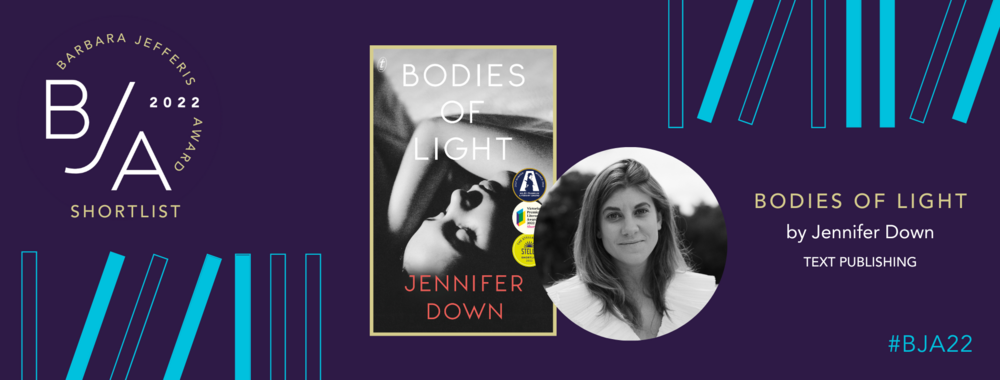27.09.22

How did you start writing?
I've always written, though it was a private pursuit until relatively recently. When I was about twenty I enrolled in a writing and editing course at TAFE, and was fortunate to work with wonderful teachers and students who encouraged me to consider writing for an audience, not just myself. At the time I was revising and workshopping a manuscript called Our Magic Hour, which ended up being my first published novel.
What inspired you to write Bodies of Light?
The novel was born of parallel preoccupations—firstly, with the ways in which the state has failed (and continues to fail) at-risk children and young people. The reality of what it means to experience residential and out-of-home care is something not often discussed in fiction, film, or news media, and young people and 'care' leavers are rarely afforded a voice anywhere in our society. At the same time, I was also interested in the phenomenon of people who reinvent themselves, or start a new life—what this involves from a practical perspective, but mostly the psychic and emotional cost of erasing yourself. I became really interested in questions of memory, and what it means to obliterate and then reconstitute a sense of self, and the malleability and mutability of identity.
What was your writing process like for this book - what were the most challenging and enlightening aspects of writing it?
I wrote—still write—around a full-time job as a copywriter, which remains the most challenging part of things: trying to find space for creativity, research, deep thinking, and curiosity in small, weird slivers of free time. With Bodies of Light, much of the research involved reading deeply distressing material. The upshot of this, then, is that for several years, much of my spare time was spent sitting with 'care' survivor testimony, courtroom and police transcripts, coronial inquests, parliamentary inquiries, and so on.
In which ways do you think Maggie might be an empowering figure for women and young girls?
This is an interesting question, since so much of her character and decisions are shaped by a profound lack of agency, or power. I see her as resilient, and smart, and tough. She's tremendously gutsy. She's dogged, and cops to her own decisions, and makes no excuses for herself or others. Perhaps there's a measure of empowerment in that. I'm pleased with the idea that she might be read as empowering, but more than that, I hope she feels real.
How do you think literature helps to shape our understanding of ourselves and others?
There's been plenty said about the relationship between reading and empathy. Literature can also serve an important function as a sort of mirror: some of my most profound reading experiences have arrived when I've recognised myself in a book. Not because a story or character resembled me, necessarily, but because they behaved or spoke in a way that felt so true to life. Sometimes books have a way of revealing difficult truths in a way that no friend ever could without hurting you.
What was the most recent book you've read about women or girls that moved you?
I've (sadly) read very little non-work-related books lately! But I did revisit Aileen Moreton-Robinson's Talkin Up to the White Woman a month or so ago, because I had the privilege of speaking alongside her at Melbourne Writers Festival. I hadn't read it since uni, and back then, I think I only read a few extracts. I was blown away by how relevant it remains, and how incisive and eminently readable it is. It's not a huge book, but I really wanted to savour it so I could metabolise bits and pieces at a time, so I read it quite slowly.
Jennifer Down is a writer and editor. Her debut novel, Our Magic Hour, was shortlisted for the 2014 Victorian Premier’s Literary Award for an Unpublished Manuscript. The story collection Pulse Points won the 2018 Readings Prize and the 2018 Steele Rudd Award in the Queensland Literary Awards. She was named a Sydney Morning Herald Novelist of the Year in 2017 and 2018. Bodies of Light, her second novel, won the 2022 Miles Franklin Literary Award. She lives in Naarm/Melbourne.
Keep up-to-date with ASA advocacy, support and advice
with our fortnightly newsletter.